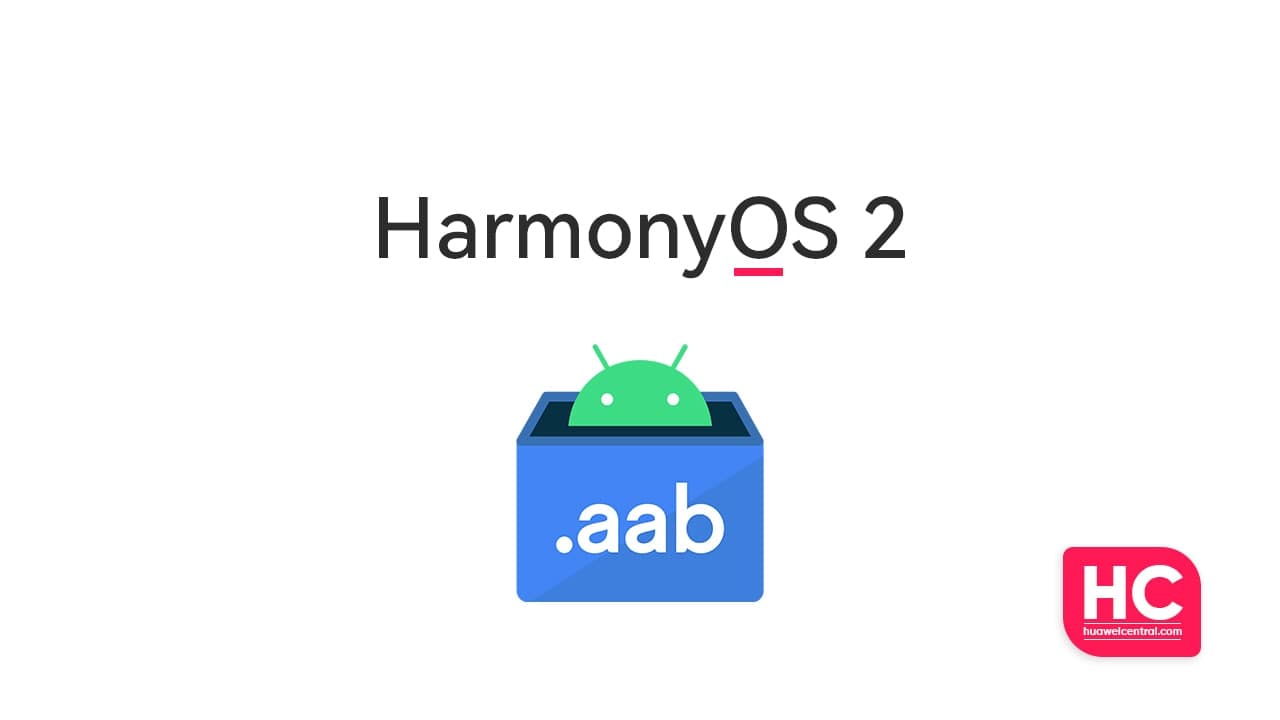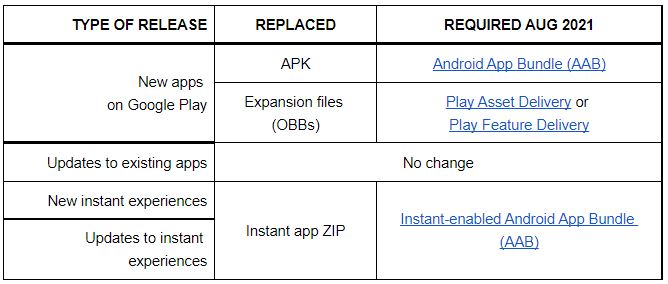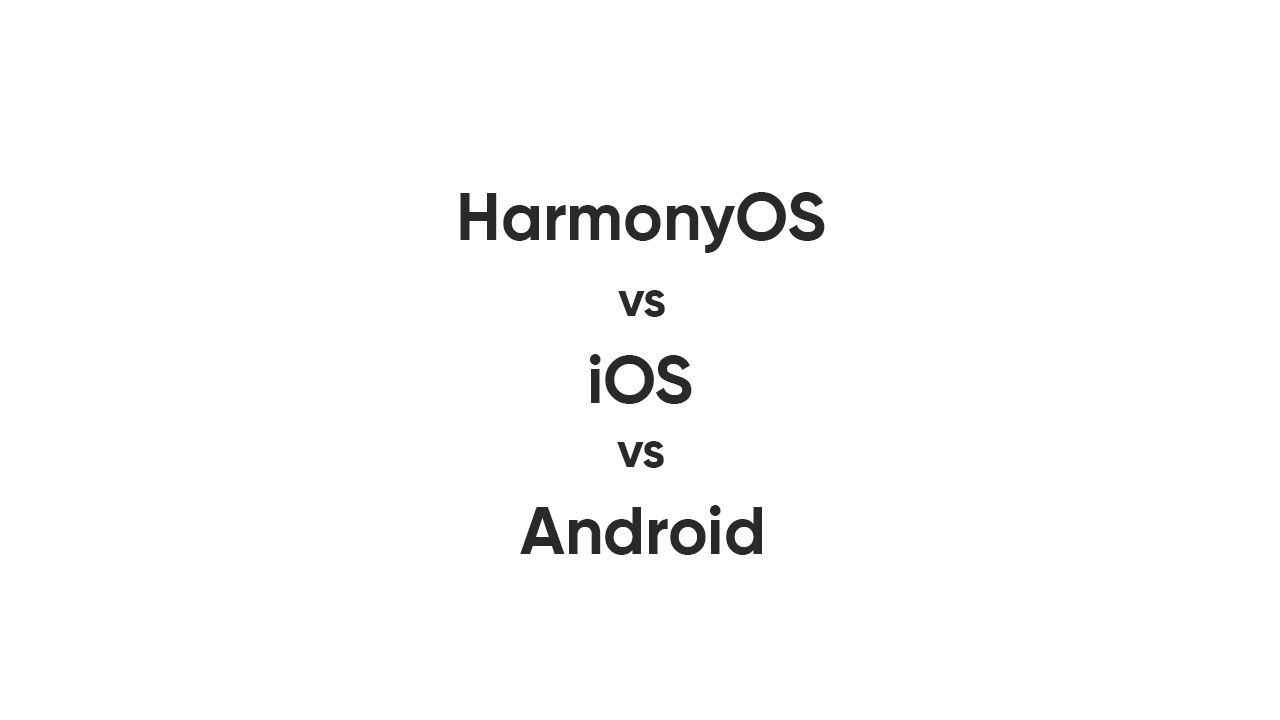Android
Android AAB apps, a direct attack on Huawei HarmonyOS?

Currently, Huawei is busy in the process to shift its devices over the latest HarmonyOS 2 mobile operating system, which was unveiled on the 2nd of June 2021. However, there is still a long way remains for the company to cover.
The story of HarmonyOS comes into existence after the US put a ban on Huawei and Google left with no choice to withdraw its service support from the Huawei device. As Huawei has to fight for its survival, so the company brings an Android rival named HarmonyOS (Hongmeng OS or HM OS).
After numerous challenges, Huawei finally successfully started to launch HarmonyOS 2 in the devices and applications. The process is going smoothly and Huawei is again becoming stable but Google now surprisingly introduced the AAB or Android App Bundles, which seems to another threat for Huawei.
At this moment there are a lot of perspectives that need to be explained in order for a clearer understanding of how AAB can be a threat to HarmonyOS 2. Let’s get start.
What is AAB?
AAB is the acronym for Android App Bundles – a new app publishing format introduced by Google in 2018. This new format provides us features like reduced app size, high installation rate, easy switching, customizable features, Play Feature Delivery (PFD), and Play Asset Delivery (PAD), etc.
Now the question is if this format brings this many benefits how it can be a threat to Huawei?
Well, Google made this mandatory for the upcoming apps on Google Play Store by August 2021. It means every developer who wants to submit his app on the Play Store, must compile the app in the AAB format, otherwise, that app won’t be published on the Play Store.
At present, all the application uses APK (Android Application Format) format, which has support for different platforms. Unlike APK, the AAB doesn’t provide support for platforms such as Huawei AppGallery, and Amazon App Store.
It directly indicates that if a developer wants to submit his App on other channels after publishing on Play Store, the developer must have to reconvert the application in APK. As the other platforms still accept this format and not the AAB.
The same goes for the HarmonyOS kernel code, which supports only the APK format and possibly will next have to include AAB app support branches in the development.
Why Google Suddenly changed the program format of AAB?
Although Huawei smartphones don’t support the GMS (Google Mobile Service) but able to install some Android apps on HM OS. This is the most relieving fact for the users who takes fancy of Android applications even after upgrading to a whole new operating system.
If Huawei’s mobile software succeeds in building a brand new realm of the software world, it’ll be direct harm to Android. As we all know that success is a slow process and can’t be achieved in few trials. Neither we nor Google can overlook this attempt of Huawei.
At present, HarmonyOS isn’t as famous as Android but the distributive capabilities of the software have been acknowledged by the worldwide developer and they started to approach the company to adopt the HM OS.
Although Huawei HarmonyOS still depends on APKs, it certainly will setup up and take some time for Huawei to break free of dependence and stand alone on its own.
However, Huawei is in early-stage in overcoming the back-to-back stricks such as US-Sanction, Google apps withdrawal, and chip shortage, so it’s necessary for the company to run on the right track even if the speed is slow.
Even after these existing difficulties, the new AAB introduction could create another challenge for Huawei. If the AAB became the default format, the applications on Huawei AppGellary may gradually become fewer in numbers. As it’ll require extra effort to republish an app on another channel with APK format for developers.
But we want to mention that AAB is not a new project from the Android maker because it has been under development pipeline for years.
Android vs iOS vs HarmonyOS: Market dominance
With the popularity of Android, it’s still the priority of the developer to promote their works such as custom skin like MIUI, ColorOS, and other apps. Exploring the software market, we found that Android is the current most dominant software, and second, comes Apple’s iOS.
Where the iOS is the close system software, is exclusive to Apple device and ruling the market on the second position. On the other hand, Android is the king of the software market and ruling the 3 billion Android devices across the world with its open-source capabilities.
Many smartphone manufacturers modified the Android as the base skin and used in their phone, this same trend was followed by Huawei with EMUI but later Huawei stopped developing new EMUI versions on Android.
The arrival of HarmonyOS brings many new features, the different platforms and models start to adapt. This new system OS is moving towards a new empire, as in just a week about 15 million devices are already installed HM OS. Furthermore, the CEO of Huawei Consumer BG also set a huge target for the next year.
If Huawei successfully acquired the 15% shares of the software market, which is the company’s one of most important goals of the company, it can challenge Android and iOS for an even bigger market.
As of this year, Huawei expected to complete the installation of HarmonyOS 2 in 300 million devices, which will bring a big change in the entire software industry.
Conclusion:
If HarmonyOS secures its place in the software market, it’ll defiantly emerge as a new rising star and somehow Android doesn’t want to let that happen.
Momentarily, we have to wait for Huawei’s response to this situation, it’s worthwhile to see what solution will the company come up with. Because, as soon the AAB will become the default Android app format, it could bring potential difficulties for HarmonyOS.









